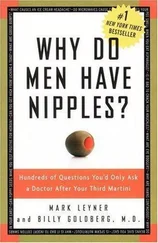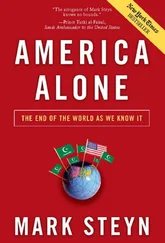At a certain level, your nine-to-five bourgeois understands that the bulk of his contribution to the state treasury is entirely wasted, if not actively destructive. It’s one of the basic rules of life: if you reward bad behavior, you get more of it. But, in good and goodish times, so what?
Very few people are fiercely political, which is reasonable enough. The point of politics is to enable life—the pleasures of family, the comforts of home, the rewards of work, good food, good company, music, golf, snow-boarding, horse-shoeing, whatever’s your bag. So, among America’s elite, there are many non-political members, comfortable, educated beneficiaries of the American Dream who just want to get on with their lives. For these people and many others, liberalism is the soft option, the one with all the nice words—“diversity,” “tolerance,” “peace,” “social justice,” “sustainability”—and the position that requires least defending if you happen to be at a dinner party and the conversation trends toward current events. If you have to have “opinions,” these are the safe ones. They’re not really “opinions,” are they? Just the default settings of contemporary sensibility.
“I never met people more indolent or more easily fatigued,” wrote H.G. Wells of the Eloi. “A queer thing I soon discovered about my little hosts, and that was their lack of interest. They would come to me with eager cries of astonishment, like children, but like children they would soon stop examining me and wander away after some other toy.” They love everything—in small doses. After all, if you love everything, why pay attention to anything in particular? If you drive around with a “COEXIST” bumper sticker, you’ve relieved yourself of having to know anything about Islam.
You went to an awareness-raising rock concert: it was something to do with Bono and debt forgiveness, whatever that means, but let’s face it, going to the park for eight hours of celebrity caterwauling beats having to wrap your head around Afro-Marxist economics.
“Their sentences were usually simple and of two words,” recalled the Time-Traveler, “and I failed to convey or understand any but the simplest propositions.” Very true. But whereas Wells’ Eloi could only speak in “concrete substantives” and had lost the use of abstract language, our Eloi drone nothing but:
What do you think of illegal immigration?
Celebrate diversity.
What do you think of gay marriage?
Celebrate diversity.
What do you think of Islam?
Celebrate diversity.
What do you think of burqas, honor killings, female genital mutilation, stoning for adultery, capital punishment for homosexuals?
Celebrate diversity.
What do you think of war?
War is never the answer.
What if the question is, “How did the United States of America achieve its independence?”
All we are saying is give peace a chance.
Is that all you’re saying?
Did we mention “celebrate diversity”?
In Fahrenheit 451 , Ray Bradbury wrote: “If you don’t want a man unhappy politically, don’t give him two sides to a question to worry him: give him one. Better yet, give him none. Let him forget there is such a thing as war. If the government is inefficient, top-heavy, and tax-mad, better it be all those than that people worry over it. Peace, Montag.”
Climate change? It’s not a question, and there aren’t two sides: there’s the side of “the environment,” and then there’s the “deniers.” Illegal immigration? There’s the side of “diversity,” and then there’s the racists. From kindergarten up, America’s “educators” teach their young charges the no-side buzz-words: Peace, Montag. The seductive peace of comfort and complacency.

THE UTOPIA OF MYOPIA
“Diversity” is an attitude rather than a lived experience. Slap the “COEXIST” sticker on your Subaru and you’re more or less done. No need to be nervous. For the most part, you’ll still be COEXISTing with people exactly like you. It certainly doesn’t mean COEXIST with that crackbrained guy who services your car and listens to Rush Limbaugh, which you found out when you picked it up from the shop and couldn’t figure out what was going on until you realized he’d retuned the radio and you were frantically pounding the buttons trying to get back to NPR so you missed the off-ramp but by then you’d found your way back to “All Things Considered” so you did get to hear that interview with the singer who has a new album but mainly wanted to talk about how the concession stands on her tour will be required to serve only fair-trade coffee.
And so the state religion co-opts many of the best and brightest but politically passive. It anesthetizes them into forgetfulness. The historian Victor Davis Hanson thinks his fellow Californians are now trending in a very Wellsian direction: the new Eloi expect to be able to enjoy all the benefits of an advanced prosperous society while erecting a regime of regulated sentimentalization that will make its continuation impossible. “The well-off like nice cars, tasteful homes, good food, and appropriate vacations,” writes Hanson, “but not the oil, gas, coal, nuclear energy, transmission lines, timber, cement, farmland, water pumps, etc, that bring that to them.” 5Indeed, they actively wage war on the latter. Just like President Obama, we love our arugula, but we support the EPA ruling that shuts down the “human use” irrigation canal that enables our farmers to grow it.
Wells’ Time-Traveler had a similar reaction to the Eloi: they lived comfortable lives, yet disconnected from the world that sustained their comforts.
“I saw mankind housed in splendid shelters, gloriously clothed, and as yet I had found them engaged in no toil,” he wrote. “These people were clothed in pleasant fabrics that must at times need renewal, and their sandals, though undecorated, were fairly complex specimens of metalwork. Somehow such things must be made.” And yet he saw “no workshops” or sign of any industry at all. “They spent all their time in playing gently, in bathing in the river, in making love in a half-playful fashion, in eating fruit and sleeping. I could not see how things were kept going.” So it is in our time: things are “kept going” by forces largely out of sight, whether in the Flownover Country of working America, or in the shadows of the Undocumented, or in the factories of China.
Conversely, as Professor Hanson sees it, the new Morlocks of the American underclass demand iPods and video games and other diversions they regard as their birthright, but are all but incapable of making any useful contribution to the kind of society required to produce them: I suppose the attitude of the directionless youth is something like the following, though never articulated: “Some nerd will dream up a new video game; the Chinese will build it for me cheaply; and I will play it at my leisure given my birthright both as an exalted American and the enormous debt ‘they’ (fill in the blanks) owe me.”
At some point the world snaps back, “Nope, the Indian and Chinese young person knows more, works harder, produces more—and gets more than you, despite your American brand.”
The new Morlocks are primitivizing, while the new Eloi are becoming more elite and refined. “But they share a disturbing commonality,” says Hanson. “Both expect something that they are not willing to invest in.”
In his book Civilization and Its Enemies , Lee Harris writes of a collective “forgetfulness” that over time settles in to peaceful societies. The so-called “Greatest Generation” made serious mistakes when they took control of the levers of the state, but always somewhere, however deeply buried, they remembered what it was like to live in a world at war and, before that, a world of mass privation. The Baby Boomers who followed knew nothing other than peace and prosperity. They weren’t “forgetful,” for they had nothing to forget.
Читать дальше












